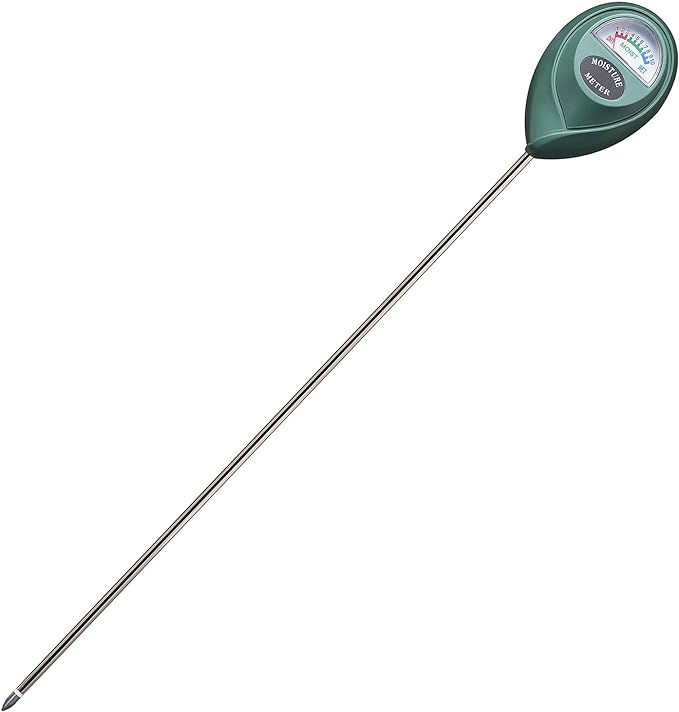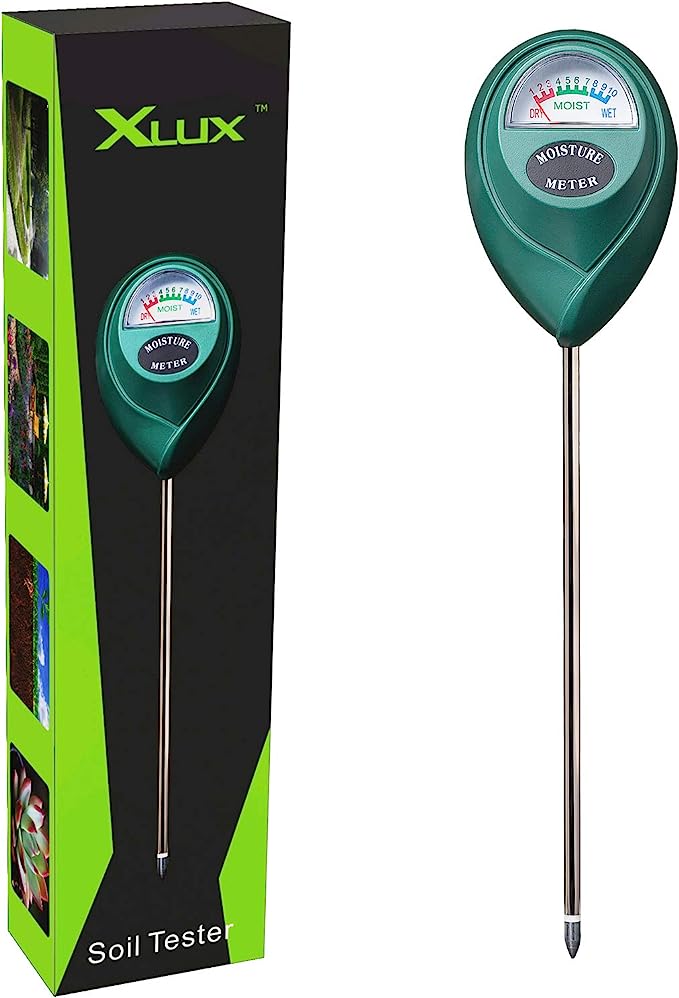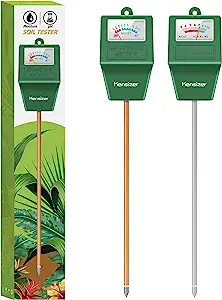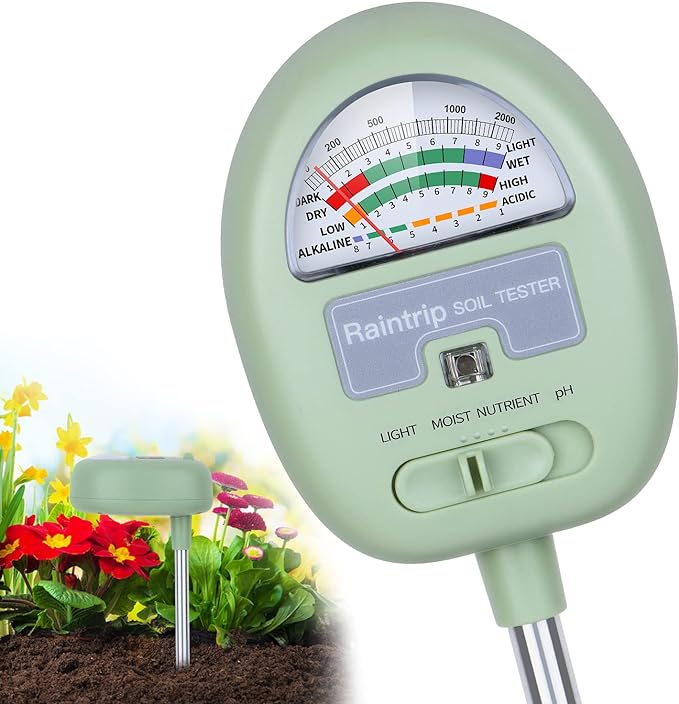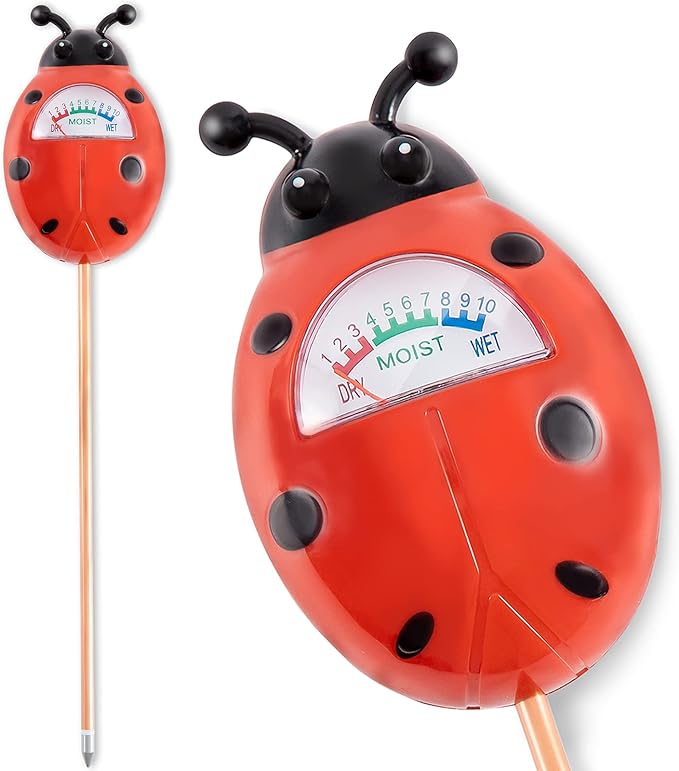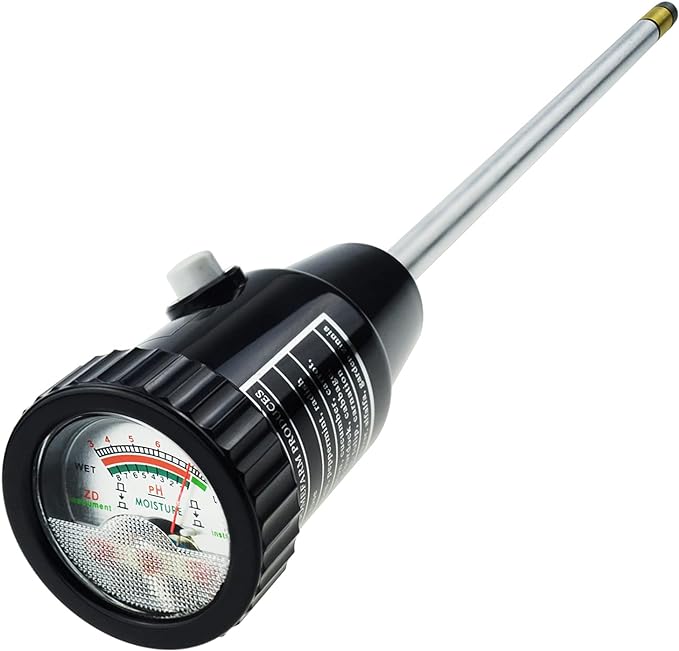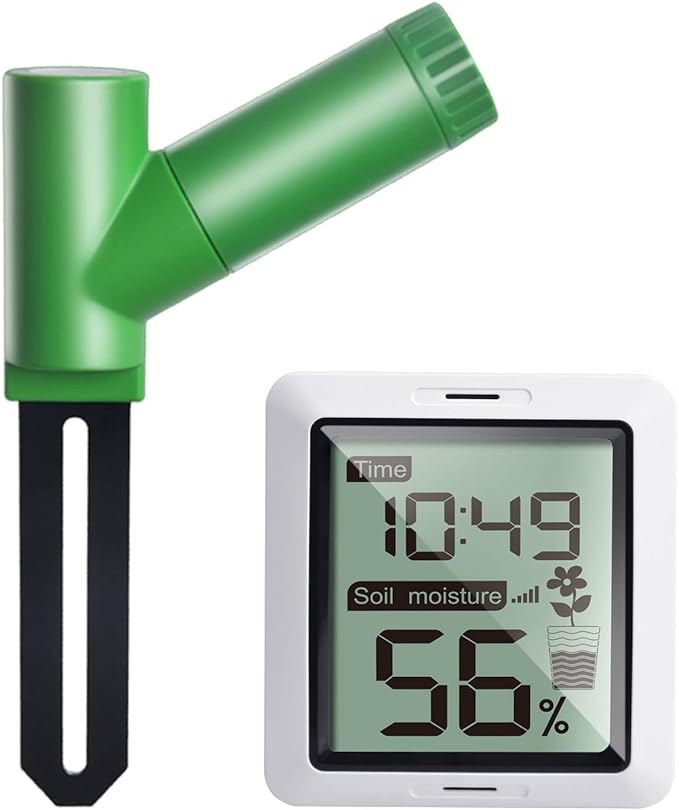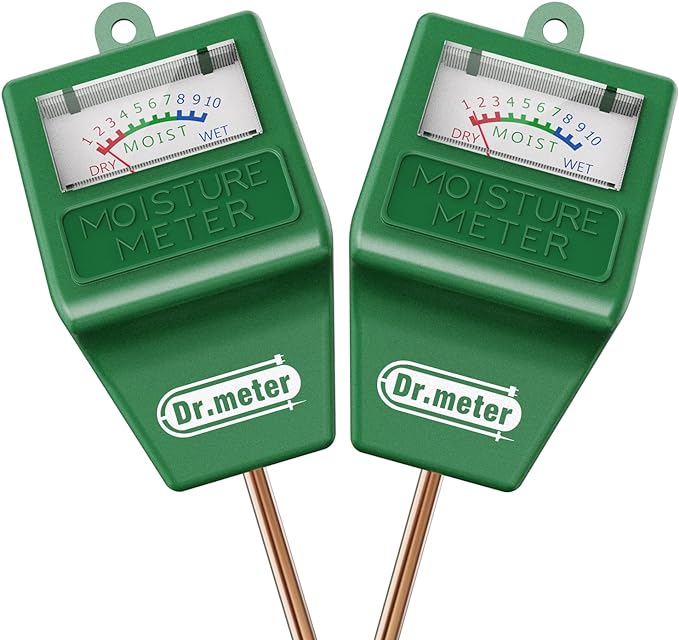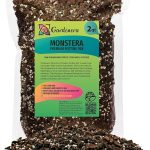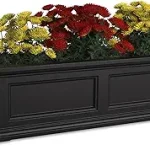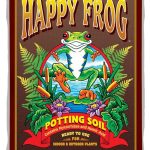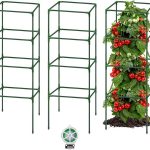As you venture into the world of gardening, you’ll quickly realize that understanding your soil’s moisture levels is vital for your plants’ survival. Overwatering can be detrimental, while underwatering can be equally harmful. That’s where a reliable soil moisture meter comes in. With so many options on the market, it can be overwhelming to choose the right one for your gardening needs. But, what if you had an in-depth guide to the top-rated meters of 2025? You’re about to get an insider’s look at the most accurate and efficient soil moisture meters that’ll take your plant parenting skills to the next level.
Contents
- XLUX Soil Moisture Meter for Outdoor/Indoor Plants
- XLUX Soil Moisture Meter, Plant Water Monitor
- Kensizer Soil Moisture/pH Meter Tester
- Soil Moisture Meter, Soil Ph Tester
- Soil Moisture Meter for House Plants
- Soil PH Meter, Soil Moisture Sensor for Gardening
- ECOWITT Soil Moisture Tester
- Dr.meter Soil Moisture Meter
- Factors to Consider When Choosing Soil Moisture Meters
- Frequently Asked Questions
- Conclusion
XLUX Soil Moisture Meter for Outdoor/Indoor Plants
If you’re an avid gardener seeking a reliable and accurate tool for measuring soil moisture, the XLUX Soil Moisture Meter for Outdoor/Indoor Plants is an excellent choice.
Thanks to its long probe that reaches 5.5 inches deeper than ordinary probes, this tool allows you to accurately measure soil moisture levels in your outdoor or indoor plants, ensuring they receive the right amount of water.
The single probe design minimizes damage to roots and soil, making it a safe and efficient tool for your gardening needs.
With its easy-to-read dial featuring ten scales, you’ll get instant readings to help your plants grow healthy and strong.
Best For: Avid gardeners who want a reliable and accurate tool for measuring soil moisture levels in their outdoor or indoor plants.
Pros:
- Accurate measurements with a long probe that reaches 5.5 inches deeper than ordinary probes
- Easy to use and read with a clear and large dial featuring ten scales
- Minimizes damage to roots and soil with a single probe design
Cons:
- Not suitable for testing water or other liquids
- Requires cleaning after use to ensure accurate readings
- No specific warranty information is provided
XLUX Soil Moisture Meter, Plant Water Monitor
For gardeners seeking a reliable and accurate way to monitor soil moisture, the XLUX Soil Moisture Meter, Plant Water Monitor is an excellent choice, thanks to its instant testing results and easy-to-read large dial with ten scales.
You’ll appreciate the single probe design, which minimizes soil disturbance, and the fact that it doesn’t require batteries.
This compact device weighs only 2.39 ounces and measures 10.43 x 1.18 x 2.17 inches.
With over 55,550 ratings and a 4.4-star rating, customers rave about its ease of use, accuracy, and durability.
By using this meter, you’ll be able to prevent overwatering and underwatering, create precise watering schedules, and promote healthy plant growth.
Best For: Gardeners, indoor and outdoor plant owners, and farmers who want to ensure optimal soil moisture levels for their plants.
Pros:
- Provides instant and accurate soil moisture readings
- Easy to use and read with its large dial and single probe design
- Promotes healthy plant growth and sustainability by preventing overwatering and underwatering
Cons:
- Not suitable for testing water or other liquids
- Requires careful handling to avoid damaging roots when inserting the probe
- Needs regular cleaning to ensure accurate readings
Kensizer Soil Moisture/pH Meter Tester
The Kensizer Soil Moisture/pH Meter Tester is an excellent choice for gardeners seeking accurate and hassle-free soil readings due to its plug-and-play design and single probe detection.
You’ll appreciate the convenience of not needing batteries, as this meter is ready to use right out of the box.
The single probe detection makes it easy to insert and get accurate data.
Measuring 2.2 x 1.89 x 11.22 inches and weighing 4.5 ounces, this meter is compact and portable.
While it’s generally accurate for moisture readings, you should note that pH value accuracy depends on soil moisture between 4 and 7, with a margin of error of around 1-2.
Best For: Gardeners seeking accurate and hassle-free soil readings, particularly those who value ease of use and compact portability.
Pros:
- Easy to use with a plug-and-play design and single probe detection
- Compact and portable, making it easy to take on the go
- Generally accurate for moisture readings and provides good value for money
Cons:
- pH value accuracy depends on soil moisture between 4 and 7 and has a margin of error of around 1-2
- Some customers have reported issues with durability and longevity
- pH readings may be inaccurate, as reported by some customers
Soil Moisture Meter, Soil Ph Tester
This 4-in-1 multi-function soil moisture meter is the best choice for gardeners who need to quickly and accurately measure soil moisture, pH, nutrients, and light conditions in their gardens.
With its single-probe design and upgraded material, you’ll get fast response times, with test results in just seconds.
The patented design features a 90° rotating head, making it easy to read the results.
Plus, you won’t need to worry about batteries, as this device doesn’t require any.
Measuring only 2.6 x 1.3 x 10.4 inches and weighing just 3.52 ounces, it’s portable and convenient to use.
With over 3,200 customer reviews and a 4.2-star rating, this Raintrip product is a popular choice among gardeners.
Best For: Gardeners who need to quickly and accurately measure soil moisture, pH, nutrients, and light conditions in their gardens.
Pros:
- Fast response times, with test results in just seconds
- Portable and convenient to use, with a compact design and no battery requirements
- Patented design with a 90° rotating head for easy reading
Cons:
- pH metering has a limited range (1-8) and is not fine-tuned for smaller pH ranges
- Probe can corrode over time, requiring light sanding to refresh
- Some users have experienced issues with accuracy and durability
Soil Moisture Meter for House Plants
If you’re tired of overwatering or underwatering your beloved houseplants, a soil moisture meter is the best choice, pinpointing the perfect watering schedule for your green friends.
This meter is designed specifically for house plants, providing accurate readings to guarantee your plants receive just the right amount of moisture.
The device is easy to use, simply stick the meter into the soil and read the large, easy-to-read gauge.
With a lightweight and sturdy design, it can penetrate mildly firm soil with ease.
Users rave about this product, saying it’s helpful in monitoring plant water needs and is easy to use and read.
Best For: Houseplant owners who want to ensure their plants receive the right amount of water without overwatering or underwatering.
Pros:
- Accurate readings to determine the perfect watering schedule for houseplants
- Easy to use and read, with a large and easy-to-read gauge
- Lightweight and sturdy design that can penetrate mildly firm soil with ease
Cons:
- Cannot be left in the soil or stuck into a cup of water
- Some users wish it could be left in the plant permanently
- No additional features beyond basic soil moisture measurement
Soil PH Meter, Soil Moisture Sensor for Gardening
Soil pH Meter and Soil Moisture Sensor is a top choice for gardening enthusiasts and professionals alike who need accurate and reliable readings to determine the pH levels and moisture content of different types of soil.
This thorough tool provides precise measurements, making it suitable for commercial use in vineyards, orchards, and field production, as well as for home use in gardens, planters, and lawn maintenance.
The 295mm electrode allows for deep penetration, and the waterproof metal electrode guarantees durability.
Plus, it’s self-powered, eliminating the need for batteries.
To certify proper performance, be sure to calibrate the meter periodically and follow the recommended operating temperature range of 5-50°C (41-122°F).
Best For: Gardening enthusiasts and professionals who need accurate and reliable readings to determine the pH levels and moisture content of different types of soil.
Pros:
- Provides accurate and reliable readings for pH levels and moisture content of different types of soil
- Waterproof metal electrode and durable construction ensure a long-lasting life
- Self-powered, eliminating the need for batteries
Cons:
- Requires periodic calibration for proper performance
- Operating temperature range is limited to 5-50°C (41-122°F)
- No specific warranty information is provided
ECOWITT Soil Moisture Tester
Within 72 seconds, the ECOWITT Soil Moisture Tester provides accurate measurements of soil moisture content, making it the best choice for gardeners who need quick and reliable readings.
This device is perfect for indoor and outdoor use, thanks to its waterproof moisture sensor.
You’ll appreciate the digital LCD display, which features a flower pot icon and allows you to easily check the time in 12/24hr format.
With a custom mode for manual calibration, you can guarantee precise readings every time.
Powered by 2 AA batteries, this compact device weighs only 200 grams and measures 5.91W x 1.18H inches.
With a 4.3-star rating and over 976 customer reviews, this meter is a top choice for gardeners seeking accurate and affordable soil moisture monitoring.
Best For: Gardeners who need quick and reliable soil moisture readings, especially those with indoor and outdoor potted plants, lawns, and gardens.
Pros:
- Accurate measurements of soil moisture content within 72 seconds
- Waterproof moisture sensor for indoor and outdoor use
- Custom mode for manual calibration ensures precise readings
Cons:
- Requires calibration for accurate readings
- No Wi-Fi connectivity for remote monitoring without a separate gateway
- Batteries not included
Dr.meter Soil Moisture Meter
For gardeners seeking a low-maintenance, eco-friendly solution, the Dr.meter Soil Moisture Meter stands out as a top choice due to its battery-free operation and gentle, non-invasive probe design.
You’ll appreciate the ease of use, with a color-coded reading system that’s easy to understand, ranging from red to green to blue.
The compact and portable design makes it perfect for indoor and outdoor use.
With 10 scales to measure moisture levels, you’ll get accurate readings without harming your plants. Plus, the single probe design guarantees you won’t damage roots.
With over 3,800 ratings and a 4.4-star rating, it’s clear that this meter is a favorite among gardeners.
Best For: Gardeners seeking a low-maintenance, eco-friendly solution for measuring soil moisture levels in their indoor and outdoor plants.
Pros:
- Battery-free operation and gentle, non-invasive probe design make it easy to use and gentle on plants
- Color-coded reading system with 10 scales provides accurate and easy-to-understand measurements
- Compact and portable design makes it perfect for indoor and outdoor use
Cons:
- Some reviewers found the product to be sensitive to moisture and not suitable for certain types of plants
- May require modification to reduce sensitivity using a potentiometer
- Limited warranty information available upon request
Factors to Consider When Choosing Soil Moisture Meters
When choosing a soil moisture meter, you’ll want to verify several key factors to guarantee you get the right one for your needs.
You’ll need to ponder the importance of accurate readings, how the meter will perform in your specific soil type, and the durability of the probe material.
Accurate Readings Matter
You need to ponder several key factors when selecting a soil moisture meter to guarantee you’re getting accurate readings that will help you optimize plant growth and reduce water waste.
Accurate readings are vital, as overwatering can lead to root rot, while underwatering can cause drought stress, resulting in reduced crop yields and decreased plant quality.
Inaccurate readings can also lead to over-reliance on fertilizers and pesticides, which can have detrimental environmental and health impacts.
When choosing a soil moisture meter, you should consider factors that affect the accuracy of readings, such as probe material, soil type, and temperature.
A study by the University of California, Davis, found that using soil moisture meters can reduce water usage by up to 20%, while maintaining or improving crop yields.
It highlights the importance of accurate readings in agricultural settings.
By selecting a meter that can adapt to different environmental conditions, you can guarantee you’re getting precise readings that will help you make informed irrigation decisions.
It won’t only benefit your plants but also contribute to sustainable and environmentally friendly farming practices.
Soil Type Considerations
Selecting a soil moisture meter that accurately detects moisture levels in your specific soil type is essential, as different soils have unique properties that affect their water-holding capacities.
You need to take into account the characteristics of your soil when choosing a meter. For instance, if you have sandy soils, you’ll need a meter that can detect moisture levels quickly, as sandy soils drain fast and require frequent watering.
On the other hand, if you have clay soils, you’ll need a meter that can detect moisture levels in dense soils, as clay soils hold water longer and may require less frequent watering.
If you have loamy soils, which are a mix of clay, silt, and sand, you’ll need a meter that can accurately detect moisture levels in a balanced soil type.
Additionally, if you’re using organic soils like peat moss or compost, you’ll need a meter that can detect moisture levels in these soils, which have different moisture-holding capacities than inorganic soils.
Probe Material Importance
The probe material of your soil moisture meter plays a critical role in ensuring accurate readings and prolonging the device’s lifespan, as it comes into direct contact with the soil and is susceptible to corrosion and damage.
When choosing a soil moisture meter, you’ll want to think carefully about materials that are durable and resistant to corrosion. Stainless steel and titanium are popular choices for their ability to withstand harsh soil conditions.
The length and thickness of the probe are also important factors, as longer probes allow for deeper soil penetration and thicker probes provide more stability in the soil.
Some probes are coated with non-stick materials, like Teflon, to prevent soil from sticking and making insertion and removal easier.
The type of sensor technology used in the probe also varies, with capacitive and resistive sensors each having their strengths and weaknesses in different soil types and conditions.
Ease of Use Factor
When choosing a soil moisture meter, you’ll want to select a device that’s easy to use, as it’ll directly impact the accuracy and efficiency of your soil moisture readings.
In fact, 71% of users consider ease of use a key factor in their purchasing decision.
A user-friendly soil moisture meter should have a clear and simple design, with 85% of users preferring a single-probe design that minimizes soil disturbance and reduces the risk of root damage.
The meter should also have a clear and easy-to-read display, with 90% of users preferring a large dial with clear numerical scales and color-coded readings.
You’ll also want a meter that’s self-powered, eliminating the need for maintenance and replacement, as preferred by 60% of users.
Additionally, a lightweight and portable design is essential, with 80% of users preferring a compact design that fits easily in a pocket or bag for on-the-go use.
Calibration Requirements
You’ll need to reflect on the calibration requirements of a soil moisture meter, as it directly affects the accuracy of your readings and verifies the reliability of your data, providing you with trustworthy information to make informed decisions about your plants’ watering needs.
Calibration guarantees the meter’s sensor is accurately detecting moisture levels, which is vital for ideal plant care.
Look for meters that require minimal calibration or have an auto-calibration feature, saving you time and effort.
Some meters may need periodic recalibration, so consider the maintenance requirements and whether they fit your schedule.
Additionally, check if the meter comes with a certification of calibration or has undergone rigorous testing to validate its accuracy.
You’ll want a meter that provides consistent and reliable readings, so evaluating its calibration requirements is vital.
Frequently Asked Questions
Can I Use a Soil Moisture Meter for Hydroponic Plants?
You’re wondering if a soil moisture meter is suitable for hydroponic plants. While they’re designed for soil, you can still use them in hydroponics to measure the moisture levels in the growing medium, but you’ll need to adjust the readings accordingly.
How Often Should I Calibrate My Soil Moisture Meter?
You should calibrate your soil moisture meter every 1-3 months, or when you notice inconsistent readings. Calibration verifies accuracy, so you can trust the data and provide ideal care for your plants.
Are Soil Moisture Meters Affected by Extreme Temperatures?
You’re wondering if extreme temperatures affect your soil moisture meter’s accuracy. Yes, they can! Most meters operate between 32°F and 122°F; temperatures outside this range may impact readings, so keep that in mind when using your meter.
Can I Use a Soil Moisture Meter in Pots With Different Soil Mixes?
You’re wondering if you can use a soil moisture meter in pots with different soil mixes. Yes, you can, as long as you calibrate the meter for each mix and consider factors like soil density and organic matter.
Do Soil Moisture Meters Work in Soil With High Salt Concentrations?
You think salt-kissed soil is the perfect recipe for a thriving garden, don’t you? Newsflash: high salt concentrations can wreak havoc on your plants! Most soil moisture meters will struggle to provide accurate readings in salty soil, but don’t give up hope just yet.
Conclusion
You’ve made it to the end of our list of the 8 best soil moisture meters of 2025!
As you prepare to give your plants the TLC they deserve, remember that overwatering is a common mistake – in fact, it’s estimated that up to 90% of houseplants die from excessive watering.
By investing in a reliable soil moisture meter, you’ll be taking a vital step towards becoming a more mindful and sustainable gardener.
Happy planting!
